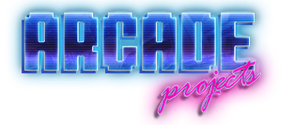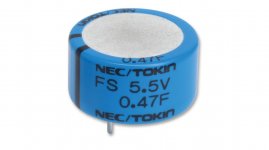I've got a 4 slot MVS board that is absolutely filthy, and doesn't work. I considered putting in the dishwasher, but the water is very, very hard where I live, so decided against it. Something to possibly consider if you also have very hard water.
You are using an out of date browser. It may not display this or other websites correctly.
You should upgrade or use an alternative browser.
You should upgrade or use an alternative browser.
Dishwashing PCBs
- Thread starter djsheep
- Start date
Pixel Krisis
Student
Rinse with distilled water afterwards?I've got a 4 slot MVS board that is absolutely filthy, and doesn't work. I considered putting in the dishwasher, but the water is very, very hard where I live, so decided against it. Something to possibly consider if you also have very hard water.
When the pcb has too much dirt, I never use tap water (domestic) this water has saline components.
I use distilled and deionized water and an antistatic brush, then I remove the traces of water by blowing with a compressor and repeat the process with isopropyl alcohol.
It's very important remove the battery and any element that contains voltage, such as super capacitors before to start washing.
By the way, I use an ultrasound tank, but the method is the same for manual washing.
I use distilled and deionized water and an antistatic brush, then I remove the traces of water by blowing with a compressor and repeat the process with isopropyl alcohol.
It's very important remove the battery and any element that contains voltage, such as super capacitors before to start washing.
By the way, I use an ultrasound tank, but the method is the same for manual washing.
Attachments
Shunn
Student
Where does everyone buy IPA to clean their pcbs? I'm use to buying it at Wal-mart but for normal use.
Buy it in bulk. In Australia we can get good deals on 100% IPA from nail salons. Last time I paid $11 USD for 5 litres (1 Gallon).
Last edited:
the Goat
Grand Master
https://www.amazon.com/gp/product/B0868R7JF6Where does everyone buy IPA to clean their pcbs? I'm use to buying it at Wal-mart but for normal use.
adgenet
Professional
I wanted to stay away from commenting due to potential flaming, but I couldn't help myself.
Professional pcb cleaning is done with an industrial dishwasher-like device, and a special cleaner.
Don't take my word for it, here's just one example by CERN: https://www.electronicsweekly.com/news/business/manufacturing/cerns-alternative-pcb-washer-2014-12/
Final rinse is done with... guess what? Plain old water.Though obviously Deionized water is the better choice if you have hard water in your area.
From what I see, there are only two potential problems with a household dishwasher.
First, is that nasties from the board and cleaning agents will get mixed into the dishwasher that you use for things that touch food. This is not great for obvious reasons, even though theoretically the wash should be sufficient to wash them all away.
Second, a household dishwasher uses fairly low impact water. This may not be sufficient for the water to work it's way under bga and larger smd components, leaving contaminants under components which can mix with water and cause corrosion..
I have personally been washing electronics and PCBs for a long time now with a process that involves an IPA wash/scrub, followed by a hot water rinse, followed by a scrub with a cleaner that has a saponifier of some sort in it, then another hot water rinse before an immediate final thorough drying using heat.. Never had any issues, and the boards come out looking great. Inspection with my inspection microscope shows nothing to suggest that my process is damaging or induces/accelerates corrosion.
I am of the opinion that leaving contaminants on a board is more likely to induce or accelerate corrosion than washing the board clean of corrosive dirt/dust/residues.
Basically it boils down to this IMO:
1. A household dishwasher is ok, and will not damage your boards, but it may not be the right tool and may not sufficiently clean. Your mileage may vary.
2. There is nothing wrong with water rinses as long as there is sufficient impact/pressure to reach under components.
3. Always use some sort of cleaning agents, this can be IPA, a combination of your choice, or a dedicated PCB cleaning product.
4. Thorough drying is key. If you don't have a good setup to facilitate drying, don't bother with washing.
Feel free to disagree.
Professional pcb cleaning is done with an industrial dishwasher-like device, and a special cleaner.
Don't take my word for it, here's just one example by CERN: https://www.electronicsweekly.com/news/business/manufacturing/cerns-alternative-pcb-washer-2014-12/
Final rinse is done with... guess what? Plain old water.Though obviously Deionized water is the better choice if you have hard water in your area.
From what I see, there are only two potential problems with a household dishwasher.
First, is that nasties from the board and cleaning agents will get mixed into the dishwasher that you use for things that touch food. This is not great for obvious reasons, even though theoretically the wash should be sufficient to wash them all away.
Second, a household dishwasher uses fairly low impact water. This may not be sufficient for the water to work it's way under bga and larger smd components, leaving contaminants under components which can mix with water and cause corrosion..
I have personally been washing electronics and PCBs for a long time now with a process that involves an IPA wash/scrub, followed by a hot water rinse, followed by a scrub with a cleaner that has a saponifier of some sort in it, then another hot water rinse before an immediate final thorough drying using heat.. Never had any issues, and the boards come out looking great. Inspection with my inspection microscope shows nothing to suggest that my process is damaging or induces/accelerates corrosion.
I am of the opinion that leaving contaminants on a board is more likely to induce or accelerate corrosion than washing the board clean of corrosive dirt/dust/residues.
Basically it boils down to this IMO:
1. A household dishwasher is ok, and will not damage your boards, but it may not be the right tool and may not sufficiently clean. Your mileage may vary.
2. There is nothing wrong with water rinses as long as there is sufficient impact/pressure to reach under components.
3. Always use some sort of cleaning agents, this can be IPA, a combination of your choice, or a dedicated PCB cleaning product.
4. Thorough drying is key. If you don't have a good setup to facilitate drying, don't bother with washing.
Feel free to disagree.
Shunn
Student
Thanks, I've seen products like this before but wasn't sure if I should buy them. Also I found a few if any listings for 91% IPA on amazon.

